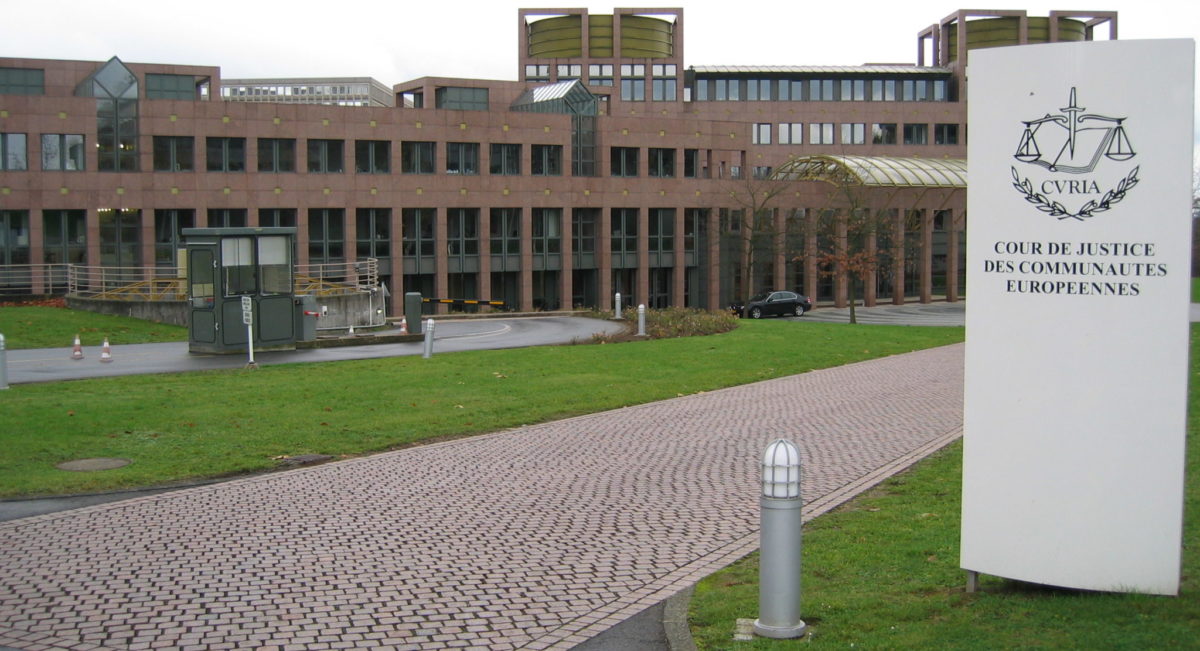Shortly before the European Commission’s final decision on the extension of existing antidumping and anti-subsidy measures against Chinese manufacturers, the Court of Justice of the European Union (ECJ) confirmed the validity of the tariffs. Investigations in 2012 and 2013 showed Chinese solar modules being sold well below market value in Europe.
26 companies brought the action before the Court for annulment of the average duties of 47.7%. The Judges reject all of their complaints, as well as further objections to the level of import duties imposed.
According to the Judges, other potential causes of damage, such as imports from Taiwan, and the reduction of aid to certain EU countries, were sufficiently taken into account by the duties against Chinese producers. None of these factors “were considered capable of breaking the causal link established between the dumped imports originating in and consigned from China and the significant injury suffered by the EU industry,” according to the judgement. The Court’s statement continues, stating: “The undertakings challenging the antidumping and anti-subsidy measures have not put forward any argument or evidence before the Court capable of showing that the abovementioned factors had an effect of such significance that the existence of injury caused to the EU industry, and that of the causal link between that injury and the imports in question, were no longer reliable.”
The ruling was welcomed by EU Prosun, which initiated the antidumping and anti-subsidy proceedings against Chinese PV manufacturers, which ultimately led to the introduction of the measures in December 2013. “Over the years, China has been building overcapacity in the solar sector and promoting dumping, especially in the EU,” EU Prosun President Milan Nitzschke told pv magazine. “The introduction of these measures has at least partially restored fair competition.”
Solar Power Europe CEO James Watson said “The judgement is entirely as expected, there is nothing illegal about the actions of the European Commission in relation to the case, the only point that is relevant is whether the trade measures really are in the interest of Europe.”
Popular content
Safe, an association of German PV companies also opposes the measures, and described the judgement as “no surprise”. “Most of the complaining companies are now out of the minimum price agreement and regularly supply Europe from their factories outside of China,” stated Safe spokesman Holger Krawinkel.
EU Prosun’s Nitzschke emphasized that the Court’s decision was very clear: “antidumping measures in the EU exist because there is dumping that would otherwise destroy all fair competition and industrial production in Europe.”
The European Commision is expected to make a final decision on the expiry review of the antidumping & anti-subsidy measures this week. The Commission will also decide the length of time for which it will extend the measures. After a simple majority of EU Member States voted against extending antidumping measures by two years, the decision went to a referral committee, where a majority voted instead to extend the antidumping measures by 18 months. The Commission's original proposal to extend anti-subsidy measures by two years was adopted by the EU member states.
This content is protected by copyright and may not be reused. If you want to cooperate with us and would like to reuse some of our content, please contact: editors@pv-magazine.com.



By submitting this form you agree to pv magazine using your data for the purposes of publishing your comment.
Your personal data will only be disclosed or otherwise transmitted to third parties for the purposes of spam filtering or if this is necessary for technical maintenance of the website. Any other transfer to third parties will not take place unless this is justified on the basis of applicable data protection regulations or if pv magazine is legally obliged to do so.
You may revoke this consent at any time with effect for the future, in which case your personal data will be deleted immediately. Otherwise, your data will be deleted if pv magazine has processed your request or the purpose of data storage is fulfilled.
Further information on data privacy can be found in our Data Protection Policy.